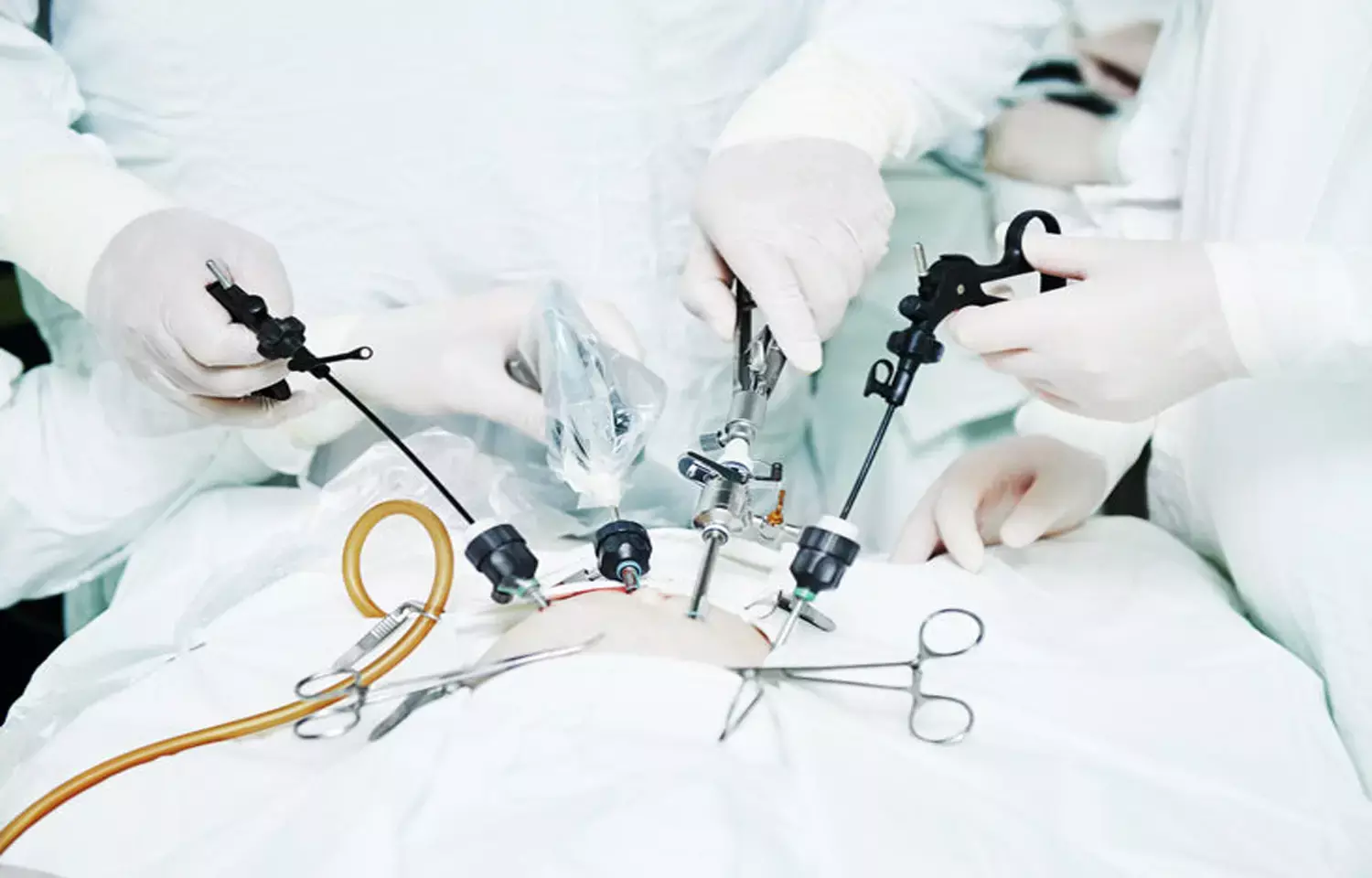- Home
- Medical news & Guidelines
- Anesthesiology
- Cardiology and CTVS
- Critical Care
- Dentistry
- Dermatology
- Diabetes and Endocrinology
- ENT
- Gastroenterology
- Medicine
- Nephrology
- Neurology
- Obstretics-Gynaecology
- Oncology
- Ophthalmology
- Orthopaedics
- Pediatrics-Neonatology
- Psychiatry
- Pulmonology
- Radiology
- Surgery
- Urology
- Laboratory Medicine
- Diet
- Nursing
- Paramedical
- Physiotherapy
- Health news
- Fact Check
- Bone Health Fact Check
- Brain Health Fact Check
- Cancer Related Fact Check
- Child Care Fact Check
- Dental and oral health fact check
- Diabetes and metabolic health fact check
- Diet and Nutrition Fact Check
- Eye and ENT Care Fact Check
- Fitness fact check
- Gut health fact check
- Heart health fact check
- Kidney health fact check
- Medical education fact check
- Men's health fact check
- Respiratory fact check
- Skin and hair care fact check
- Vaccine and Immunization fact check
- Women's health fact check
- AYUSH
- State News
- Andaman and Nicobar Islands
- Andhra Pradesh
- Arunachal Pradesh
- Assam
- Bihar
- Chandigarh
- Chattisgarh
- Dadra and Nagar Haveli
- Daman and Diu
- Delhi
- Goa
- Gujarat
- Haryana
- Himachal Pradesh
- Jammu & Kashmir
- Jharkhand
- Karnataka
- Kerala
- Ladakh
- Lakshadweep
- Madhya Pradesh
- Maharashtra
- Manipur
- Meghalaya
- Mizoram
- Nagaland
- Odisha
- Puducherry
- Punjab
- Rajasthan
- Sikkim
- Tamil Nadu
- Telangana
- Tripura
- Uttar Pradesh
- Uttrakhand
- West Bengal
- Medical Education
- Industry
Laparoscopic surgery of inguinal hernia fails to outperform open repair under local anesthesia

U.S.A: Researchers from the U.S.A found that laparoscopic inguinal hernia repair was not that beneficial when compared with an open repair under local anesthesia, but it is advantageous over open repair done under general anesthesia. The study was published in the journal JAMA Surgery.
Inguinal hernia repair is the most common general surgery procedure that is traditionally repaired using an open Lichtenstein technique and laparoscopic surgery was commonly performed for recurrent or bilateral hernias. Previous literature suggested that open repair yielded improved results by using local rather than general anesthesia and laparoscopy yielded better results under general anesthesia. As there were no studies that compared laparoscopic surgery with an open repair under local/general anesthesia, Jennie Meier et al from the U.S.A conducted a study to evaluate postoperative outcomes of initial open inguinal hernia repair under general or local anesthesia compared with laparoscopic repair.
Using the Veterans Affairs Surgical Quality Improvement Program database, a retrospective cohort study was carried out by identifying nearly 1,07,073 patients who underwent unilateral initial inguinal hernia repair from 1998 to 2019. Data were analyzed from October 2021 to March 2022. Participants were divided into 3 groups for comparison that is the open repair with local anesthesia having 22,333 patients, the open repair with the general anesthesia group having 75,104 patients, and the laparoscopic repair with the general anesthesia group with 9636 patients. Quantile regression and inverse probability propensity weighting were used to compare the operative time and postoperative morbidity. Bias from unmeasured confounding was quantified using a 2-stage least-squares regression and probabilistic sensitivity analysis.
Key findings:
- Of 1,07,073 included patients, 1,06,529 (99.5%) were men, and the median (IQR) age was 63 (55-71) years.
- Laparoscopic repair was associated with a nonsignificant 0.15% reduction in postoperative complications when compared with an open repair under general anesthesia.
- Comparision of the complications between laparoscopic surgery and open repair with local anesthesia did not yield any significant difference.
- The laparoscopic and open general anesthesia groups had similar operative times (4.31 minutes), but operative times were significantly longer for laparoscopic compared with an open repair under local anesthesia (10.42 minutes).
- Sensitivity analysis and 2-stage least-squares regression demonstrated that these findings were robust to bias from unmeasured confounding.
Thus, this novel study revealed that laparoscopic and open repair with local anesthesia were reasonable options for patients with initial unilateral inguinal hernias, and both patient and surgeon factors should be considered when choosing surgery.
Further reading: Meier J, Stevens A, Berger M, et al. Comparison of Postoperative Outcomes of Laparoscopic vs Open Inguinal Hernia Repair. JAMA Surg. Published online December 21, 2022. doi: 10.1001/jamasurg.2022.6616
BDS, MDS
Dr.Niharika Harsha B (BDS,MDS) completed her BDS from Govt Dental College, Hyderabad and MDS from Dr.NTR University of health sciences(Now Kaloji Rao University). She has 4 years of private dental practice and worked for 2 years as Consultant Oral Radiologist at a Dental Imaging Centre in Hyderabad. She worked as Research Assistant and scientific writer in the development of Oral Anti cancer screening device with her seniors. She has a deep intriguing wish in writing highly engaging, captivating and informative medical content for a wider audience. She can be contacted at editorial@medicaldialogues.in.
Dr Kamal Kant Kohli-MBBS, DTCD- a chest specialist with more than 30 years of practice and a flair for writing clinical articles, Dr Kamal Kant Kohli joined Medical Dialogues as a Chief Editor of Medical News. Besides writing articles, as an editor, he proofreads and verifies all the medical content published on Medical Dialogues including those coming from journals, studies,medical conferences,guidelines etc. Email: drkohli@medicaldialogues.in. Contact no. 011-43720751




